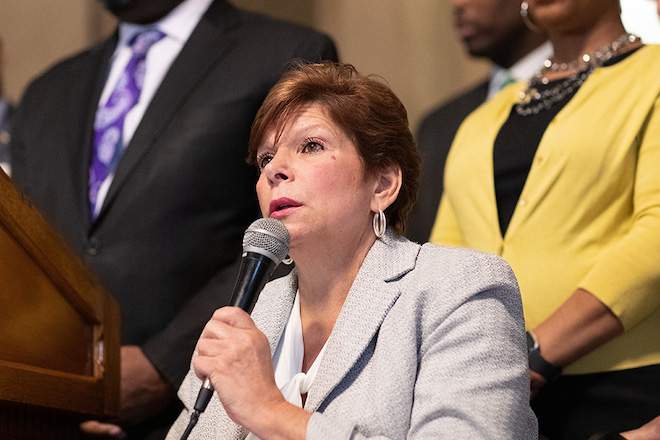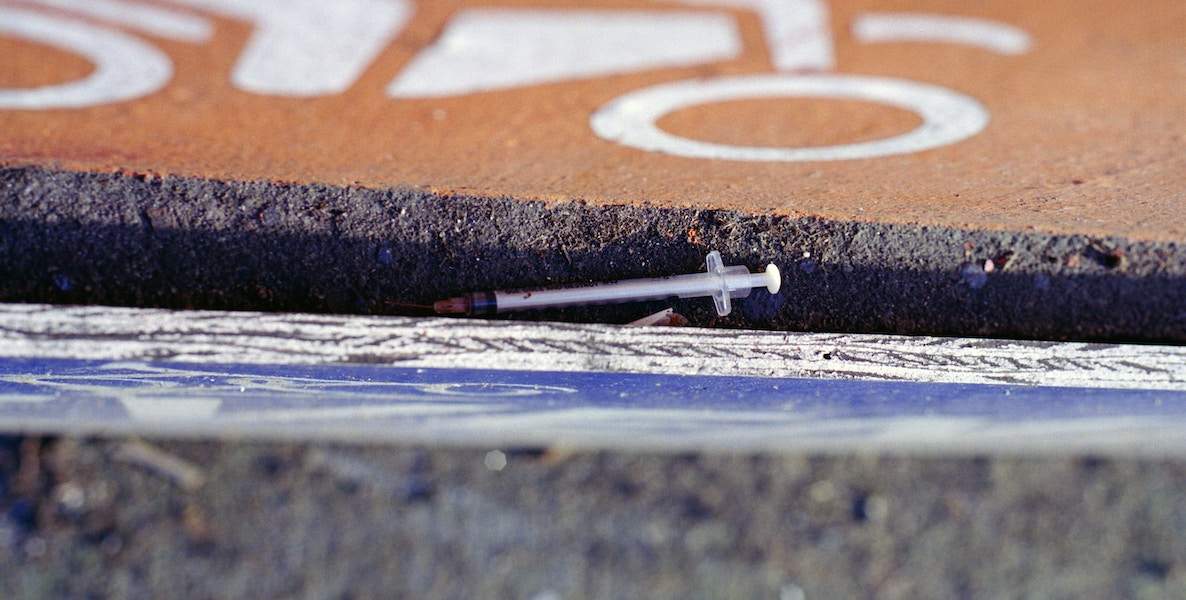On May 1, the Pennsylvania Senate voted 41-9 to adopt a bill to ban safe consumption sites (also called safe injection sites) statewide. As written, Senate Bill 165 imposes a felony sentence of up to 20 years, and / or $500,000 fine for an individual operator of a safe consumption site, and up to $2 million for a group operator. Bill 165 is now in the hands of the House Judiciary Committee, who, if they choose, will pass it along to the House, then to the desk of Governor Josh Shapiro — who has denounced safe consumption sites.
Separately, on May 11, City Councilmember Quetcy Lozada introduced a resolution that called on “Safehouse, the United States Department of Justice, and the Mayor to halt the implementation of safe-injection sites in Philadelphia …” Lozada’s stated goal: Allow communities and municipal government to be involved in the decision. Bill 230410 accompanied the resolution and, if implemented, would change zoning rules to prohibit safe consumption sites from operating in the 1st, 2nd, 6th, 7th, and 10th councilmanic districts. (These districts include Kensington, Port Richmond, Fishtown, Center City, Chinatown, and some of South, Southwest and Northeast Philadelphia.)
As a substance use disorder education and legal professional, we urge our state and city representatives to consider their votes on these proposed pieces of legislation very carefully. Research on safe consumption sites remains inconclusive at best. It’s too soon to rule one way or the other on something that’s still largely untested in the United States.
Pennsylvanians — especially Philadelphians — deserve to know more before our leaders criminalize — or, for that matter, legalize — a program that reports both benefits and harms.
Objections to and outcomes of safe consumption sites
Bill 165 sponsor Senator Christine “Tina” Tartaglione, a Democrat who represents part of Northeast Philadelphia, cites her own recovery from alcohol abuse and work in the recovery and treatment space as experiences that “help drive her legislative priorities.” In the bill’s memo, Tartaglione describes safe consumption sites as “a disservice” to people experiencing addiction and says these sites offer a “refuge” to “continue using these deadly substances,” and “fail to give these individuals a pathway to improved health and wellness.”

The truth, however, is not so straightforward. Cities with safe injection sites have reported both successes in health outcomes — and harm to communities near these sites.
In 2017, Main Line Health and Jefferson University reviewed data from a supervised consumption facility in Vancouver, British Columbia, and found that within 500 meters of the facility, fatal overdoses declined by 35 percent. The same research estimated such sites could save Philadelphia $15 to $77 million in healthcare costs annually.
But five years later, a report from researchers at McGill University working with the British Columbia CDC found “mixed results” in their study of multiple overdose prevention and supervised consumption sites in their region. Overdoses, paramedic calls, injection-related injuries, and emergency department visits declined, but hospitalization and mortality rates stayed the same.
Closer to home, New York City has struggled with unwanted secondary effects of its supervised consumption sites. In late November 2021, OnPoint NYC opened the nation’s first two safe injection sites. Mayor Bill DeBlasio said the move was a response to the 4,771 residents that New York City lost to overdoses between 2020 and 2021. For locations, the city chose Washington Heights and East Harlem, neighborhoods that have experienced some of the city’s highest rates of opioid-related overdose deaths.
Research on safe consumption sites remains inconclusive at best. It’s too soon to rule one way or the other on something that’s still largely untested in the United States.
As of May 12, 2023, OnPoint’s real-time utilization tracker reports they have served 3,258 people 72,660 times — and reversed 898 total overdoses. By this measure, the sites have been a success. But there’s another side to the story.
According to the Greater Harlem Coalition, an alliance of 150 organizations representing 6,000 residents — OnPoint deployed in East Harlem without consulting the community. Their site sits across the street from two schools and is surrounded by 1,753 homes, 3,921 residents, seven schools, and 4,250 students. In the past 17 months, residents have reported a stark increase in out-in-the-open drug dealing and use, defecation, and sexual acts within one block of the site. Used needles are everywhere. Once the site ceases daily operations, the closest subway station becomes overrun with unhoused people.
Residents say OnPoint, far from improving the lives of people living with addiction, has instead “honey-potted” hundreds more people to their streets — and essentially turned their neighborhood into a treatment center.
Where does that leave PA?
We know two things: First, more evidence is sorely needed.
There is obviously consensus among state and local representatives to treat safe consumption sites with skepticism. As City Council sponsors Lozada, Jim Harrity, Mike Driscoll, Sharon Vaughn, Cindy Bass, Brian O’Neill and Mark Squilla put forth in their resolution, safe consumption sites “have not been fully studied,” adding, “There is no evidence that communities which surround these sites will not suffer.” Notably, so far, most scientific evidence overlooks impact on U.S. society. There are many unanswered questions, such as whether these sites would compound the effects of historical racism, inflicting further harm on communities of color.
Second, the penalties under Bill 165 crush common sense.
The maximum sentence the bill imposes is akin to voluntary manslaughter. This is not proportional or congruent to the act of operating a safe injection site. Admittedly, it is premature to approve safe injection sites. But legislating such severe penalties is inexplicable. particularly when it will tie up valuable resources in corrections when they could be used for treatment purposes. There are things to criticize about City Council’s Bill 230410, but it does not carry a penalty that comes anywhere close to its Harrisburg counterpart.
On balance, Pennsylvanians deserve stricter scrutiny, quite simply because lives hang in the balance.
Jonathan J. Koehler was previously the Director of Governance and Compliance for one of Pennsylvania’s largest substance use disorder treatment centers. Presently, he is the Senior Legal Assistant for Temple University’s Sheller Center for Social Justice and a law student at Rutgers Law School.
Alexandra Koehler is the Assistant Director at Temple University’s Wellness Resource Center, where she focuses on harm reduction and education surrounding substance use disorders.
The Citizen welcomes guest commentary from community members who represent that it is their own work and their own opinion based on true facts that they know firsthand.
![]()
MORE FROM THE CITIZEN ON PHILADELPHIA’S OPIOID CRISIS



